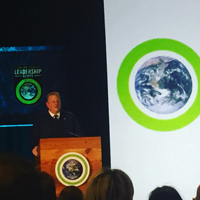
After two crucial months of due diligence and negotiations, the private equity firm TPG has pulled its bid for taking over the beleaguered surf brand Billabong. Immediately, shares dropped to 82 cents.
According to City Index chief market analysis Peter Esho, Billabong’s future is not looking good. “What we’re seeing today in the market is those that were holding the stock for a takeover offer completely leaving, discarding, and those that have trust in management, that ability to improve, are going in with a longer term horizon,” he said.
“We think there’s perhaps a little bit more selling to go.”
TPG first approached Billabong earlier in the year with an offer at $850 million which was rejected by the brand. Then this summer, they approached Billabong again for an offer just under $700 million. Two and a half months of talks later, they’ve pulled that offer.
In addition, Bain Capital (who has an equity stake in Quiksilver) had made a tentative offer in September but pulled their bid after only 2 weeks.
Uniqlo Soft Sales in USA
Meanwhile, fast-fashion giant from Japan, Uniqlo (Fast Retailing) reported a loss. The loss was mostly with UNIQLO USA as sales at the three New York stores proved soft and leading investment was channeled into the flagship stores for brand building purposes. UNIQLO operations in China and South Korea generated gains in sales and income for fiscal 2012 as a whole, but the slowdown in economic conditions meant that both operations fell short of target in the fourth quarter from June to August 2012.
UNIQLO Japan, which is the mainstay operation of the Fast Retailing Group, constitutes 66.8% of consolidated sales. In fiscal 2012, UNIQLO Japan reported growth in sales but a contraction in income, with sales expanding 3.3% year on year to ¥ 620.0bln while operating income decreased 3.6% to ¥ 102.3bln. Same-store sales expanded 2.3% year on year in the first six months from September 2011 through February 2012 on the back of strong sales of core winter items such as HEATTECH functional innerwear, Ultra Light Down and danpan warm pants. However, same-store sales contracted 4.3% in the second half from March through August 2012 after spring garment sales suffered during the inter-season period from March to May from an overly narrow inventory, and persistently cool weather through mid-July delayed sales of summer clothing. In addition, the gross profit margin fell 0.8 point in fiscal 2012 as rising raw material costs and factory processing fees pushed up the cost of sales in the first half and a broader sell off of summer inventory dampened profitability in the second half. Despite efforts to reduce expenditures, UNIQLO Japan’s SG&A to net sales ratio increased 0.4 point year on year in fiscal 2012.
UNIQLO International is expected to generate continued gains in both sales and income in fiscal 2013. Sales are seen expanding an impressive 41.0% year on year to ¥ 216.0bln and operating income increasing 45.5% to ¥ 16.0bln as UNIQLO operations in the Asian region continue to grow and profitability improves at UNIQLO USA and UNIQLO UK. The slowdown in economic conditions in China is likely to dull the pace of UNIQLO’s operational growth there temporarily, but the brand still expects to be able to increase profits from those operations in fiscal 2013 by assuming a cautious sales forecast and working to control business expenses and boost gross margin.
UNIQLO’s expansion strategy in the United States is off to a good start with the opening of the Garden State Plaza Store in a New Jersey shopping mall in September 2012 and the opening of the San Francisco Union Square Store on the West Coast in October.


